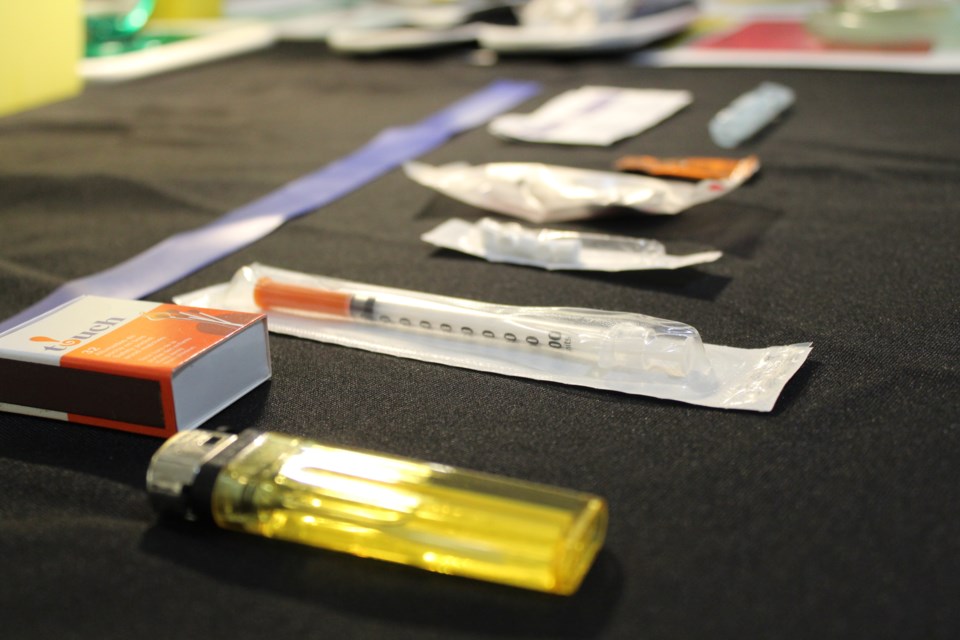The provincial government announced this afternoon that it has reviewed all Consumption and Treatment Services (CTS) applications and approved 15 sites in areas deemed to have "the greatest need."
That includes six sites in Toronto, three in Ottawa as well as one in each of London, Guelph, Hamilton, Kingston, St. Catharines and Thunder Bay. They will serve as part of the Progressive Conservative government's plan to increase mental-health and addiction services and supports.
A group in Barrie, which has the third worst opioid problem in Ontario for cities with more than 100,000 people, continues to prepare an application for a CTS facility, which will be sent to the province for approval.
Supervised consumption sites provide a safe and clean space for people to use their own drugs under the care of nursing staff.
"Our government takes the opioids crisis very seriously," Minister of Health and Long-Term Care Christine Elliott said in a news release this afternoon. "That's why we've created a new Consumption and Treatment Services model that will continue to save lives by preventing overdoses and connecting people to primary care, treatment, rehabilitation, and other health and social services to ensure those struggling with drug addiction get the help they need."
In December 2018, there were 38 opioid poisoning emergency department visits at hospitals in Simcoe Muskoka, which was down from November which saw 66 visits to Simcoe Muskoka hospitals. The Simcoe Muskoka District Health Unit reported 28 visits to Barrie's Royal Victoria Regional Health Care for suspected drug overdose in the first 10 days of February.
The local group behind the application, led by the health unit, the Gilbert Centre and the Canadian Mental Health Association (CMHA) is completing its public consultation before being sent to the province.
Matt Turner, harm reduction co-ordinator at the Gilbert Centre, said the effect on Barrie's pending application will hinge on whether the province sticks to its cap of 21 CTS sites, which could potentially only allow for six more sites scattered across Ontario.
"At this point, we still have to send our application to the province and have a location in mind, but we're still kind of where we were before this decision," Turner told BarrieToday this afternoon.
Whether today's decision bodes well for Barrie could be taken both ways. On one hand, the province sees the need for such facilities, but on the other there are so many communities dealing with an opioid crisis and only so many CTS sites to go around.
"I'd hate to say that it's good news for us. In a way, it is good news for us that there is some room in that cap," Turner said. "It's unfortunate that this decision will put lives at risk, because some cities are losing their sites."
The province hasn't reinforced the stance that they are stuck on 21 sites, however.
"From our understanding, some sites are still waiting for approval," Turner said. "So, we could see more approved, but we really don't know at this point."
Compared to some of the other cities that have been approved for a CTS, Turner said Barrie's is still among the worst. Preliminary statistics for 2018 indicate the city is on pace to exceed 2017 numbers. In the first six months of 2018, there were 123 overdoses (not necessarily fatal) in Barrie.
"I'm expecting we're going to be above that, slightly above the benchmark for the previous year," Turner said.
"Every community in Ontario is just as bad," he added. "We've seen Brantford is still relatively high. Every community in Ontario is affected by this crisis, and not every community is going to get a site, unfortunately, to prevent overdose deaths."
At Monday night's general committee meeting, Coun. Mike McCann said he will inquire with city staff about how to move forward with getting the local group an extension on their application. It will need to be pushed at Queen's Park by Barrie MPPs Andrea Khanjin and Doug Downey.
"They need to ask Downey and Khanjin for them to campaign on getting an extension," McCann told BarrieToday this afteroon. "I can't do anything. This is not city council territory.
"But there are no guarantees," he added. "This is just an effort."
McCann said the group behind the application needs to reach out to the MPPs to ask for the extension.
"I want this to succeed and I don't want it to fail, but I don't want the city taxpayers paying for this," he said. "The province is supposed to pay for this."
While McCann says he understands the time-sensitive nature of the CTS application, he also says he's still looking into its effectiveness and remains on the fence.
"I'm still investigating. I've heard both sides and I've done the research," said McCann, adding he's looked closely at what has been done in British Columbia to address the lingering drug problem there. "I'm looking at the community as a whole. I'm still not totally convinced that this is the right decision to move forward on.
"I'm here to get the right answer, not my answer," he added.
The provincial criteria in the CTS applications includes that it must address local needs, offer integrated wrap-around health and social services, provide evidence of community support and demonstrating a commitment to ongoing community engagement, consider proximity to other CTS facilities as well as licensed child-care centres, parks and schools, and meet accessibility criteria and laws.
The provincial announcement includes $3.8 billion over 10 years "to finally develop and implement a comprehensive, connected and integrated mental-health and addictions treatment strategy, centred around patients, family and caregivers," said Elliott.
"We will continue to make mental health and addictions a priority and work toward creating an Ontario where everyone is fully supported in their journey toward mental wellness," she added.



